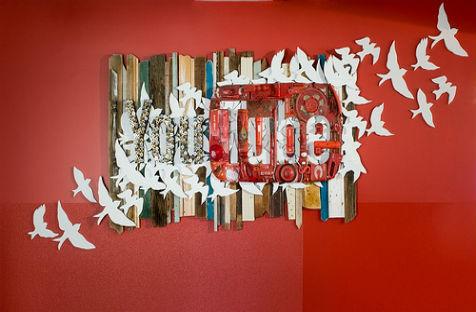Behind closed doors, Warner Music and Google appear to have struck up a deal that will allow Google to stream music across both its Android music platform, Google Play and YouTube. Although the details are being kept very hush-hush at the moment, it is known that the upcoming streaming service will provide access to millions of songs to those who pay a monthly subscription fee.
‘While we don’t comment on rumour or speculation, there are some content creators that think they would benefit from a subscription revenue stream in addition to ads, so we’re looking at that,’ a YouTube spokesperson told Fortune.
Sound familiar? That’s right, the proposed service is very similar to popular music streaming service Spotify who also provides access to music for a subscription fee. The only question now is whether Google will be able to take on Spotify, who unarguably has a head start in the music streaming business.
That’s not to say that the fight is over. Although Spotify boasts 24 million active users, one fifth of which are paid subscribers, YouTube is currently the world’s largest digital repository of streaming media and 64% of teenagers prefer YouTube over other music listening services according to a Nielsen ‘Music 360’ report. The question then is, will people remain loyal to YouTube if it offers an option where users have to pay for its service? Currently, YouTube offers all its content for free and relies on heavy amounts of advertising to make revenue. Although it is not yet clear what paid subscribers will receive for their money when YouTube does finally launch its music streaming service, it is likely that this will include ad-free access to songs as well as other bonus features.
Naturally, everyone wants to know how Spotify is dealing with the news that it might soon have a very strong competitor on its hands but the company doesn’t seem that phased, noting that they tend not to focus too much on competitor activity.
‘Our real competitor is of course Piracy and we will continue to support the music industry and music lovers by offering the best legal alternative to piracy on the market and to make music discovery easier than ever before,’ a Spotify spokesperson said.
And Google may not be the only competitor Spotify has to face. Reuters recently reported that music giant Apple is considering collaborating with Beats Electronics to launch a music streaming service named ‘Daisy.’ Not to mention the number of music streaming services which are already in existence, such as Rhapsody, Rdio and Pandora.
So what does this mean for the artists making the music? According to Fortune, major music labels are finding that there is money to be made through streaming music. The Warner Music Group, for example, is said to have received 25% of its digital revenue from streaming last year. But as streaming music services are still a relatively new concept, it remains hard to determine both the benefit and downside that music streaming provides to record companies, who are still unsure as to how much content they should give away to such services.
A bigger concern for all music streaming services is that it remains a slow growing industry. In the US, Muve Music is the most popular music streaming provider and has just 1.4 million users. Spotify is close behind with 1 million. Despite this, music rights holders are placing great hope in Google’s ability to digest a large piece of the music streaming pie.
‘Google, with its hundreds of millions of users through search, and YouTube with more than 800 million users, arguably is the biggest funnel we can have,’ Universal Music Group’s Francis Keeling told Musically.
‘Clearly, if we can get consumers into a legal funnel through that route and encourage them into subscription that would have a very positive impact on the business.’
As ArtsHub recently reported, things are looking up for the music industry with music revenue up for the first time since 1999. Part of this rise was attributed to subscription based music services like Spotify and Rhapsody, who have grown 44% in the last year. So while it still remains to be seen whether music streaming is here to stay, if anyone is able to popularise the format it’s likely to be YouTube who not only attracts an impressive 800 million users a month but is also responsible for launching the careers of artists like Justin Bieber and introducing the world to Gangnam Style.





